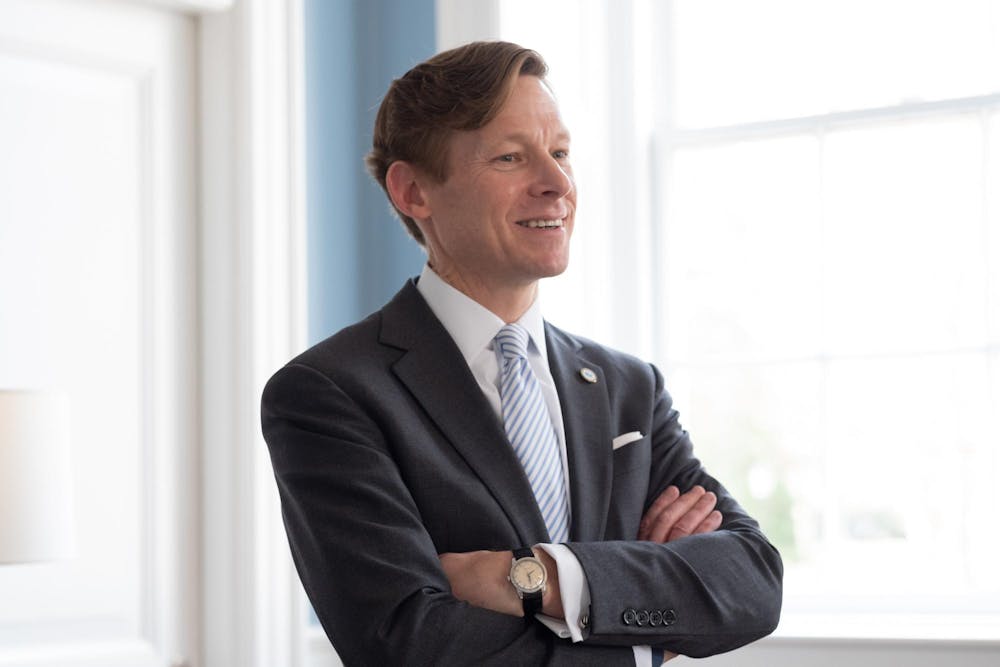After being elected UNC’s 13th chancellor, Chancellor Lee Roberts sat down with DTH University Editor Ananya Cox to discuss his experience as interim chancellor and plans for this upcoming year.
This interview has been edited for brevity and clarity.
DTH: Why would you consider yourself qualified to be UNC’s chancellor?
Lee Roberts: It's true that I don't have traditional academic experience, but I do think I have relevant experience, and my hope is that the work ahead allows me to combine my background in business and finance and management and budgeting with the extraordinary talent that's already here.
DTH: Moving from the interim to permanent chancellor position, do you have any specific plans for this year?
LR: We'll be taking a look at how we deploy AI, both internally and for our research priorities. The state has grown very rapidly and every year we enroll a decreasing percentage of North Carolina's graduating high school seniors. Should that continue? If not, how do we grow? Not everyone thinks of us as an engineering school, but we've got about 170 faculty teaching engineering subjects right now, and we've got superb programs in applied physical sciences, in biomedical engineering, in data science and in Environmental Engineering, very strong student demand for those programs, very strong employer demand for those students. And so the question is, should they grow? We have a series of new capital needs as we always do, including our Translational Research Building, including the Porthole Alley project. We've got a long list.
We're also excited to get the School of Civic Life and Leadership off the ground. New Dean off to an extremely strong start, has hired nine new faculty members starting by Sept. 1, all with exceptional backgrounds. Also, everything that's happening in college athletics. It's obviously a time of significant change and upheaval, and our job is to make sure that when the dust settles, Carolina is better off.
DTH: During pro-Palestine protests on April 30, counterprotesters were heard saying identity-based slurs and seen committing acts of physical violence. You shook hands with many people who were part of that group. Tell me about why you did that, and do you approve of the actions of those students and community members?
LR: There's obviously no place for slurs or hate speech, let alone violence, on this campus. We not only support student protest, we encourage student protests. We want our students to be engaged and passionate and active in the world, and we have some very reasonable, I think, easy to follow, time, place and manner restrictions, and rules about protests.



